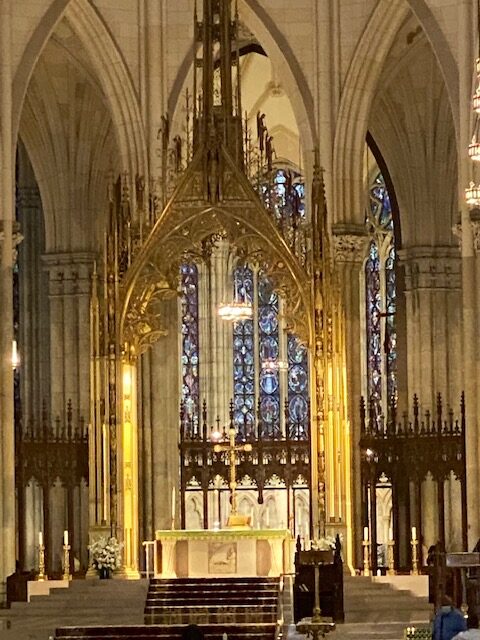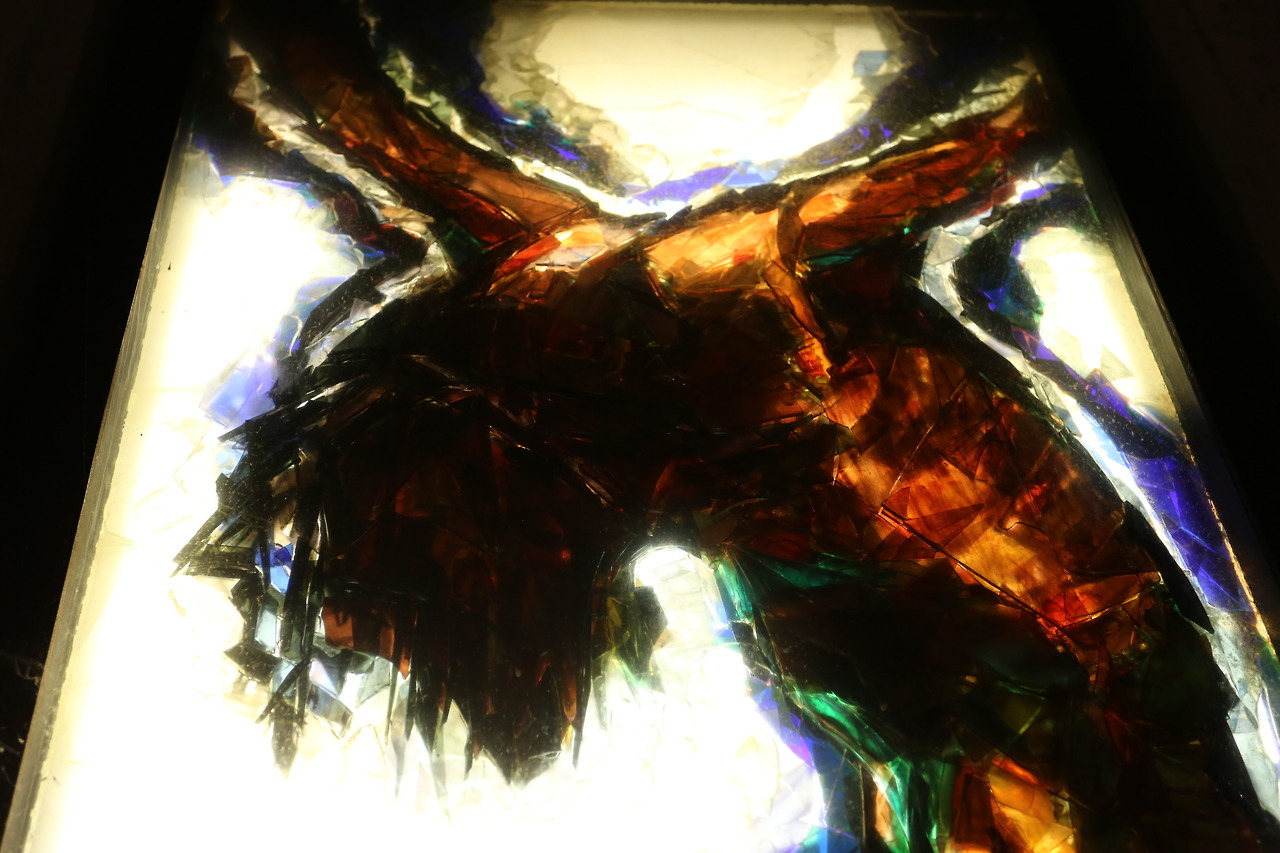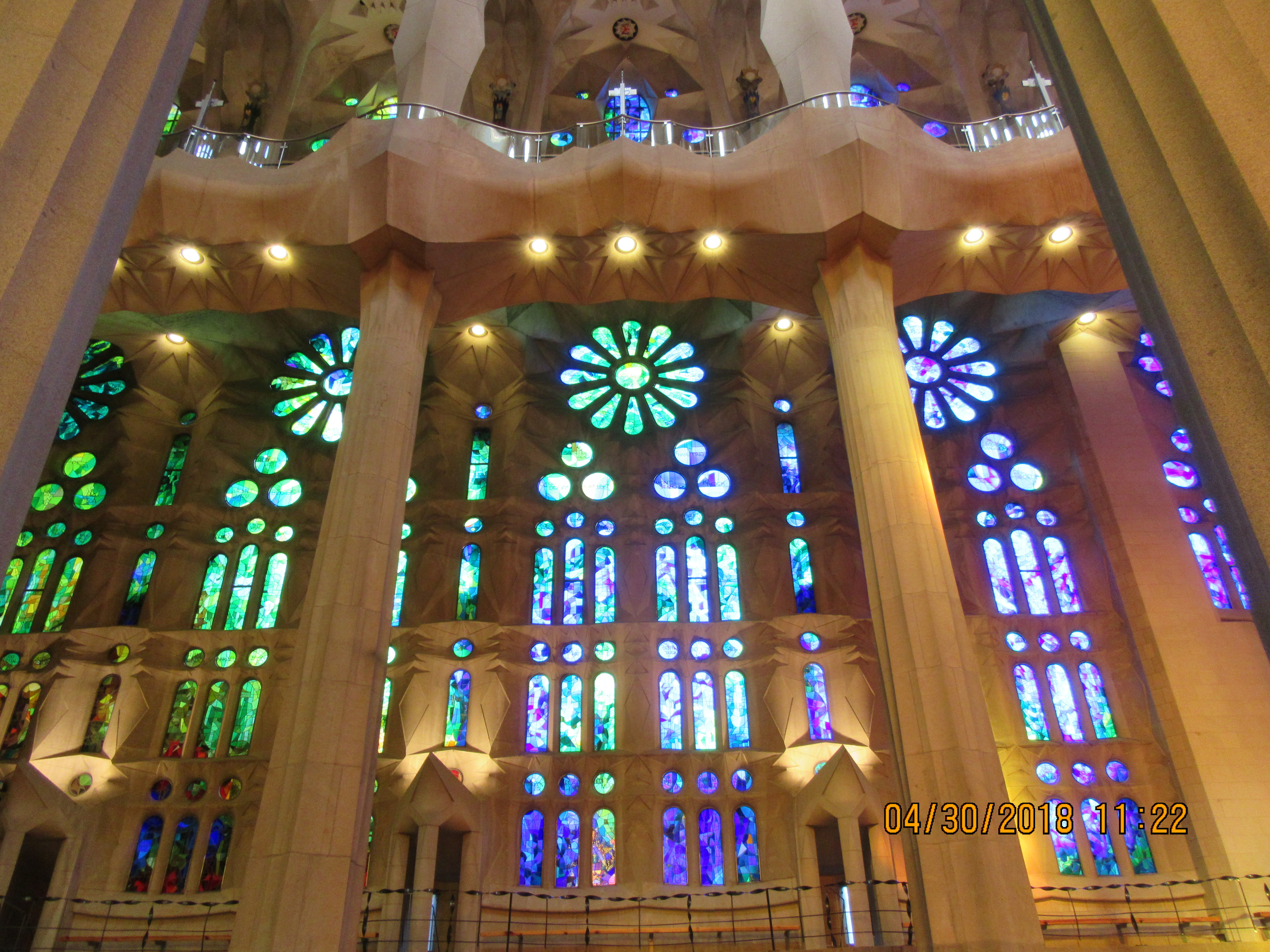Josh. 5:9a, 10-13; Ps. 34:2-7; 2Cor. 5:17-21; Lk. 15:11-32
“Taste and see the goodness of the Lord.” In Christ we are a “new creation; the old things have passed away” and we are called to be “ambassadors for Christ”. As baptized Christians we all have a calling to reconciliation. From the ministry of the priesthood and the sacrament of reconciliation to the baptized faithful we carry a message from Christ “as if God were appealing through us”. The message is to seek reconciliation with God and with each other so we may taste and see, through reconciliation the goodness of the Lord. We are to pray for our enemies, bring peace into our homes, and spread the good news of reconciliation to our neighbors.
“Taste and see the goodness of the Lord” in our neighbor. It is not that hard to love thy neighbor in the abstract until they move into our neighborhood living close enough, we hear their music outdoors, their dog poops in our yard, and their yard starts to look like a jungle. We’re suppose to love “that”? We’re suppose to love “them” not “that”. We’re suppose to seek reconciliation to support the peace and the God of peace will work through us so we may taste and see how something negative can be transformed into the goodness of the Lord. Ambassadors speak for the one they represent and we represent Christ first before it becomes about “us” and not all about us.
Our Protestant brothers and sisters are much more accustomed to asking others “are you a Christian?” In asking it seeks to find common ground as a believer with what unites us before we ever look at what separates us. Then as ambassadors for Christ they will refer to bible passages to share their faith and their love of God as an invite to join in a faith discussion. If you have ever been asked the question what was the response? Hopefully it was “yes, I am Catholic” and able to speak for the faith we carry as One, Catholic and Apostolic Church. We are ambassadors of the Church and we can bring reconciliation to our separated brothers and sisters by the message we deliver of faith, hope, and love through an understanding of our Catholic faith with others. We want others to taste and see the goodness of the Lord by spreading the faith in God under his church.
One of the blessings out of media resources is Catholic programming in radio, television, podcasts, social media, internet, and even audio books. Programs specifically targeting either a return to the Catholic church or the apologetics of the church in understanding our faith are having a great impact. I hear callers say they are not Catholic but enjoy listening in or by “chance” they tuned in and began to listen. Often it is Catholics who are being catechized further in understanding our faith through media. Every week I post the Sunday homily to the webpage www.thedeacon.net to share the gospel message because it may be the word that someone needed to hear to “taste and see the goodness of the Lord”.
Catholic media can be a bridge to spiritual direction. The Church supports and believes in the value of a spiritual director but how many of us have a spiritual director? I suspect not many and one reason is there are few available to provide that one-on-one guidance on a regular basis. Pastors are generally “fire fighters” for crisis situations. I met with a priest for spiritual direction recently and he informed me he would probably be leaving the diocese. Given the reality that there are few priests available to meet with he suggested using Catholic reading material as a form of reflection, prayer, and guidance. If you give me a book, I’m good and happy. We need to grow deeper roots into our faith and media resources is one form of feeding the soul so we can have a well-informed conscience.
Taste and see the healing power of God. In the gospel, Jesus gives us a parable of the mercy of God in the Father and the fallen nature of humanity in the two sons. The son who squanders his inheritance in a life of corruption “was dead” says his father, an indication of living in mortal sin. By his return to his father, he “has come to life again”. In our day we have many sons and daughters being lost in corruption of addictions of all types, alcohol, drugs, sex, money, even to power. They live in the culture of death dependent on what is evil and separated by mortal sin rejecting the love of God. Their inheritance of heaven has been lost but hope is the last to die for their return home through the mercy of God. God’s love heals the broken, sick, and lost when our senses recognize only a power greater than us can heal us, lift us from the pit of sin, and restore us in right relationship with our God, our family, and our friends.
Taste and see in the “older son” the danger of the sin of self-righteousness. When we judge ourselves better than others, more deserving, and entitled we fall into the pit of pride slowly eroding the image of God by the denial of all our venial sins creating separation not unity. What is the “taste” the older son had? It was a taste of “bitterness”, bitter that his brother had returned and was being welcomed back with love by his father. The bitterness of pride creates a false sense of self-righteousness.
The older son believed by his obedience he had earned his entitlement and was never even given “a young goat to feast” with his friends. His error in judgment was in comparing himself to his brother and expecting a reward based on his merits. Perhaps the older son may have even felt there was favoritism by the father if you recall the story of Cain and Abel. The jealousy of Cain for his brother Abel caused him to shed the blood of his brother, just like the jealousy of Joseph’s brothers caused them to want to kill him. Do we celebrate the success and blessings of others or do we taste and see with bitterness their joy?
Let us compare ourself to no one else but if we are tempted to compare ourself then let us look to Jesus and ask ourself “are we living the life example and message he gave us?” We take a tea cup and fill it to the top and we take a beer mug and fill it to the top, both are 100% full but each has a different capacity and purpose for what it is capable of holding. Each of us is given a gift and possibly more than one gift that we can taste and see what good our gift can produce. For example, my gift as a deacon is a great blessing but it is not the gift of priesthood. So much more is expected from a priest that is not my calling. Pray for our priests because they will give account of all the lives they served or failed to serve. Let us be humble and thankful for what God is asking of us in our state of life for to who more is given more will be demanded. We may only have one talent but one talent can move mountains when it comes from God.
This Lent let us “taste and see the goodness of the Lord…in the land of the living” by faith and action to our calling. Let us be among the living in the presence of God and pray for those among the dead in the darkness of sin. This is our time to bring reconciliation into our lives by taking the first step towards mercy…that is to God himself in the act of penance for our sins.
“Taste and see the goodness of the Lord” in the Holy Father’s consecration of Russia and the Ukraine and of all humanity this week on the day of “The Annunciation of the Lord” what miracles the Lord can bring to these nations and for all of us as we pray for peace and an end to war. It is our calling to join in with our prayers asking God to reveal to us his goodness and by his mercy and love bring also our conversion. Amen.








Recent Comments